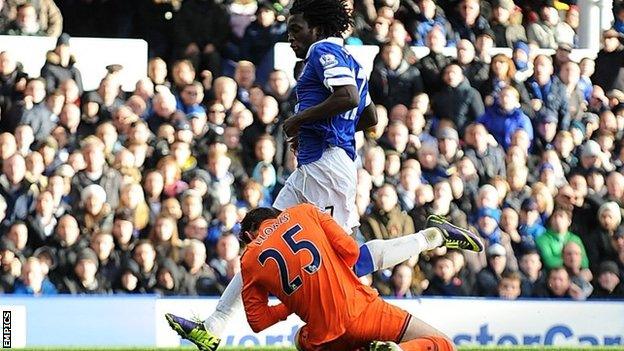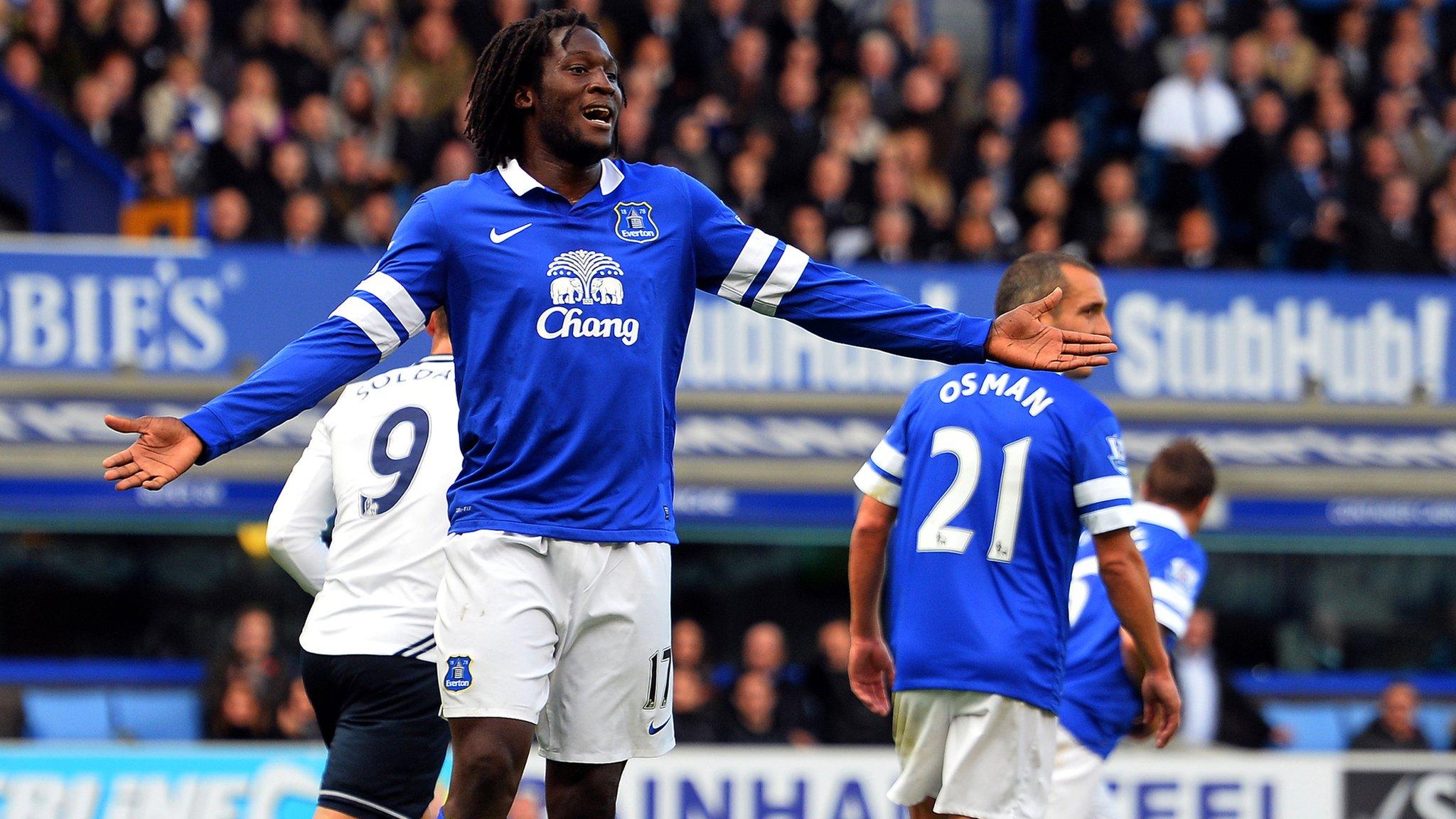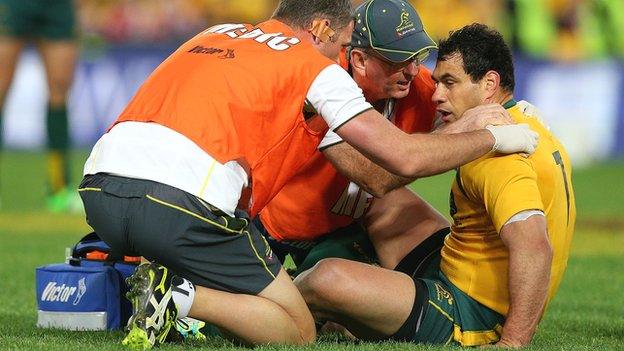Tottenham 'irresponsible' over Hugo Lloris head injury
- Published
- comments

Romelu Lukaku and Hugo Lloris
Tottenham have been described as "irresponsible" for allowing goalkeeper Hugo Lloris to play on against Everton after losing consciousness.
The France international, 26, suffered a head injury when he collided with Romelu Lukaku's knee late on in Sunday's game, which finished 0-0.
Spurs said Lloris was cleared to resume by the club's medical team.
But brain injury charity Headway said the club were guilt of an "irresponsible and cavalier attitude".
Initially, Lloris looked like he would be taken off on a stretcher after colliding with Everton striker Lukaku in the 78th minute of the Premier League game at Goodison Park.
But, following a lengthy delay and with Brad Friedel preparing to come on, the keeper was allowed to stay on by manager Andre Villas-Boas.
"It was a big knock, but he looked composed and ready to continue," said Villas-Boas.
"Hugo seemed assertive and determined to continue and showed great character and personality. We decided to keep him on based on that. The call always belongs to me."
That decision was backed by Tottenham's head of medical services.
"Once the relevant tests and assessments were carried out, we were totally satisfied that he was fit to continue playing," said Wayne Diesel.
Villas-Boas pleased with 'good point'
But Headway spokesman Luke Griggs felt Spurs made the wrong call.
"When a player - or any individual - suffers a blow to the head that is severe enough for them to lose consciousness, it is vital they urgently seek appropriate medical attention," he said.
"A physio or doctor treating a player on the pitch simply cannot accurately gauge the severity of the damage caused to the player's brain in such a setting as there may be delayed presentation of symptoms.
"By continuing to play, the player may have caused greater damage to his brain. He should have been removed from the game immediately and taken to hospital for thorough tests and observation."
Lloris underwent a precautionary scan following the game and was given the all-clear, travelling back to London that night.
Lukaku, who was cautioned for the challenge, had to put ice on his knee after being replaced shortly after the incident.
Fifa's chief medical officer also felt Lloris should have been substituted - in accordance with the governing body's guidelines.
"The fact the other player needed ice on his knee means it's obvious the blow was extensive," said Professor Jiri Dvorak.
"It's a 99% probability that losing consciousness in such an event will result in concussion.
"I know that the Premier League doctors are extremely good and I can imagine that the doctor may have recommended he be replaced.
"We have a slogan: if there is any doubt, keep the player out."
Spurs posted several tweets in response to the criticism.
One claimed Lloris was cleared to resume playing after examination by the club's medical team, while another confirmed the player underwent a precautionary CT scan following the match and was "given the all-clear".
Football Association guidelines state that a player who leaves the field of play with a head injury "shall not be allowed to resume playing or training without the clearance of a qualified medical practitioner".
Spurs captain Michael Dawson appeared to try to persuade Lloris to go off after he got to his feet.
The centre-back admitted his initial feeling was that the goalkeeper should not have continued.
"He took a really bad whack and I was worried when he went down and stayed down," said Dawson. "When he got up his legs gave way, but he stayed on and made two good saves.
"I lead those boys but safety is the most important thing. He was in a bad way, but, by the time he came around, he was wanting to stay on."
Sweeper-keeper Lloris - risky or brilliant?
Guidelines from Headway and the National Institute for Health and Care Excellence state people should not play any contact sport for at least three weeks after suffering a concussion.
Griggs added: "Sports science has evolved significantly over the past decade and yet we're still faced with the antiquated concept that a player should be brave and try to continue at all costs.
"Mr Villas-Boas's comment that his player's determination to play on was proof of his 'great character and personality' is simply wrong and dangerous."
- Published3 November 2013

- Published1 November 2013

- Published7 June 2019
